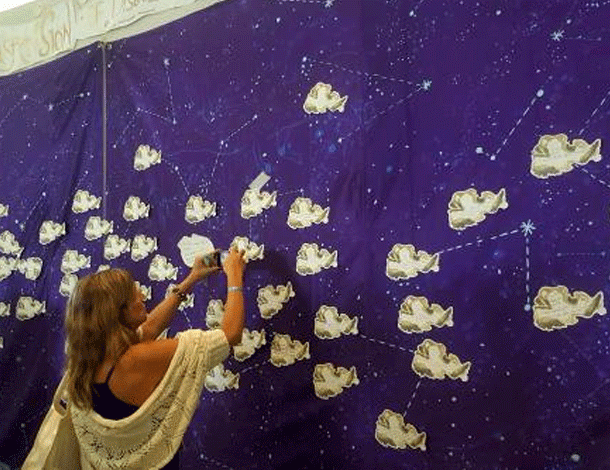The power of sharing distinct, yet related experiences
I felt an incredible and instant rush of energy from connecting with feminist activists and organizers from all around the world at AWID’s 13th International Forum in spite of the exhausting 24-hour journey from Beersheba, Israel (historic Palestine) to Salvador, Brazil. There’s something empowering about surrounding ourselves with those who validate our struggles, and understand the multi-faceted elements of fighting for inclusive justice. This is especially empowering for those of us who do feminist work in politically and socially challenging environments. From having side conversations, to attending larger sessions, the air at this Forum was full of powerful and positive energy which was necessary to let go of our fears, and move forward with the creation of collective and evolving feminist cross-movements.
Interconnected indigenous struggles
Through representing Ma’an - the Forum of Arab Women’s Organizations in the Negev, I brought with me to Brazil many experiences and struggles of Palestinian Arab women living in Southern Israel, as well as their diverse and interconnected indigenous struggles against colonialism, gender and sexual based violence, and poverty. One might think that finding a space to fully represent such complex and loaded issues in the span of four days, and in a place where issues from all around the world are brought to the table, would be challenging and that is true. It seems nearly impossible to put your chaotic thoughts into concise words and guarantee painting a full picture when representing the struggles of your people.

What AWID brilliantly succeeded in doing, however, is creating a wonderful, collective and inclusive space where feminist activists from all around the world reflected commitments to feminisms, freedoms and justice through art, activism, academia, research and, most importantly, shared experiences. I found the power of collective and cross-movement organizing discussions to be particularly apparent in the Forum’s dedication to involving as many intertwined feminist struggles as possible. One of the places where I found myself able to articulate the specific Palestinian struggle within a larger context, was in sessions and conversations specific to indigenous struggles against colonialism. There were many such sessions, one example being a Mama Cash led discussion on Indigenous Women’s Organizing. The discussions and experiences that were brought forward inevitably unfolded interconnections among many forms of oppression. Our specific challenges as indigenous peoples surviving in and/or reclaiming colonized spaces are diverse. But even though our struggles are not identical, the long-term impacts and shortcomings of colonialism on indigenous populations have proven to be very similar. Collective strategizing, therefore, becomes not only possible, but incredibly essential to building successful and powerful movements.
The cross-movement initiative on Palestine
Indeed, one of the most relevant cross-movement discussions for Ma’an was the Boycott, Divestment, Sanctions (BDS) movement and the intersection of feminism and national liberation struggle. There are countless interconnections between feminist movements and the BDS one. Generally speaking, the BDS movement adopts progressive feminist and anti-colonial practices and ideologies. It is therefore an anti-colonial feminist liberation movement. The BDS, however, faces many challenges in relation to these connections. One of them is concerned with the radical Zionist Pinkwashing campaign that makes use of queer communities to portray Israel as a “gay haven”, while depicting Arab and Palestinian cultures as inherently homophobic. For organizations working on and supporting anti-colonial and feminist efforts inside Israel, the challenges we face are countless, particularly for BDS supporters inside Israel.
The BDS and Palestine specific cross-movement session provided the space to share successful strategizing efforts, discuss challenges and learn from those who share the struggle in how to overcome them. Follow up discussions raised concerns regarding difficulties faced by anti-colonial movements working inside Israel. We raised questions that addressed our position as anti-colonial feminist organizers working in Israel, questions such as what that means for us as BDS supporters and activists? How do we overcome the unremitting challenge of development funding restrictions that we face under the assumption that Arab Israelis enjoy the same rights as those living in an allegedly “developed” country?
Re-charged
On my way back from the Forum, thoughts on how to make use of all the fruitful ideas the Forum brought forward were overwhelming. So much energy, so much enthusiasm, and so many ideas! Even though many challenges persist, particularly in relation to bringing justice to Arab Bedouin women in Israel, collective strategizing helps us overcome fears of failure and isolation. Our issues intersect with one another…
About the author
Safa, an AWID member, is 52 years old and a “Palestinian citizen in Israel”. She is the Director of Ma'an ‐ Forum of Arab Bedouin Women's organizations in the Negev. Safa has obtained both, a Bachelors and a Masters degree in Social Work from the Ben Gurion University.
2224x1253.jpg)